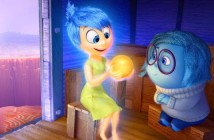Summer (2014)
Cast: Steef Cuijpers, Pieter Dictus, Martijn Lakemeier
Director: Colette Bothof
Country: Netherlands
Genre: Drama
Editor’s Notes: The following review is part of our coverage of the 25th edition of the Inside Out Toronto: LGBT Film Festival which runs from May 21 to 31. For more information on visit http://www.insideout.ca/ and follow Inside Out on Twitter at @InsideOutTO.
“In the name of the father, the son, and almighty electricity” murmurs the petty paterfamilias of Summer from the head of his table, clumsily consolidating the movie’s key ideas in a way typical of this terribly erratic effort. Proposing a cultural context forged of vague religious heritage and emergent industrialisation, Dutch director Colette Bothof’s second feature’s backdrop is about as convincing as the set of a pre-school’s nativity play, and not nearly as charming. That’s a shame, given the earnest ends to which it’s erected: amidst half-grasped ideas and longueurs left, right, and centre, there is to this tale of a shy young girl coming into her own the frisson of a fine film just as desperate as its subject to escape its restrictive trappings.
…Dutch director Colette Bothof’s second feature’s backdrop is about as convincing as the set of a pre-school’s nativity play, and not nearly as charming.
Retaining in the worst sense the silliness that characterised her previous project—the kids’ cartoon series Kika & Bob—without a hint of its enlivening self-awareness, Bothof has been handed a script that could only believably be pitched at a similar target audience, and done little beyond pretty presentation to iron out its kinks. But then who could do better: debut scribe Marjolein Bierens has thrown together a tale where kinks outnumber characters ten-to-one, and extraneous elements override emotional engagement at every turn. Her protagonist is Anna, whose introductory voiceover begins the film’s steadfast refusal to ever do less than tell, tell, tell; it’s as though Bierens just misread the rulebook somewhere along the way, offering up this ingénue’s i nternal monologue every step of the way.
nternal monologue every step of the way.
“I had no idea what could change in just one summer” she begins as though convinced hers were the first coming-of-age tale ever told. This is a terribly tepid tale, structurally speaking, banal Bildungsroman notes not so much hit on cue—there we might at least be treated to a tune—as awkwardly enacted in approximate order. Through it all, the never-ending narration explains ad infinitum, afforded inordinate space on the soundtrack beside the rare snatches of dialogue that populate every other scene. The imbalance might make sense as an emphasis of forced internalisation, were it not for the expository excess that renders this impossible to buy as anything but a writer selling a yarn.
And what a weird yarn it comes to be, in its misleadingly mundane way: feebly flailing to entangle the ideas of ethos and industry that find overzealous expression in constant close-up shots of the local power plant and a curiously constructed character, Bierens and Bothof have made a movie that seems like several, none of them especially interesting in their own right, and all working hard to detract from the eventual central romance that earns the film its place at Inside Out (how much of the movie’s impact is affected by this purview of this presentation is a matter worth dwelling on, if elsewhere). Sigrid ten Napel and Jade Olieberg comport themselves as if at the heart of a film far better; those fleeting instances where the film feels likely to find itself are theirs, and theirs alone.
…Bierens and Bothof have made a movie that seems like several, none of them especially interesting in their own right…
From a maddening proliferation of peculiar musical cues to a laughably-mounted scene that begs to utilise a squeegee to erotic effect, Summer is a movie misguided every step of the way, if consistently—and perhaps even commendably—assured of the opposite. A handheld aesthetic that conveys some sense of contained chaos at least excuses Bothof as a director not entirely devoid of efficient instinct, but the extraordinary obliviousness to her film’s manifest failings bode badly for a better exemplar to come. That it hurtles toward a finale forged on genuine feeling is both a tantalising hint what might have been, and infuriating evidence of what never even nearly was. A heart in the right place isn’t much good without a head to boot.
From a maddening proliferation of peculiar musical cues to a laughably-mounted scene that begs to utilise a squeegee to erotic effect, Summer is a movie misguided every step of the way, if consistently—and perhaps even commendably—assured of the opposite.



